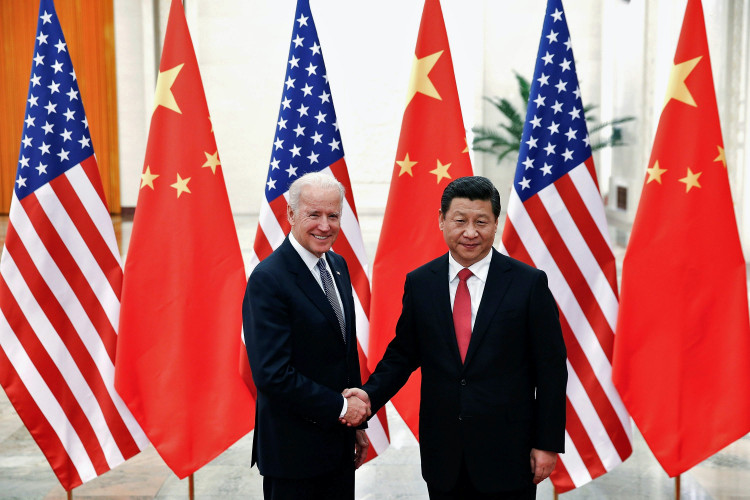U.S. President Joe Biden spoke with his Chinese counterpart Xi Jinping on Thursday for the first time since assuming office last month.
The call follows much planning between the two countries and revealed the new administration's priorities regarding relations with China.
Biden "affirmed his priorities of [...] preserving a free and open Indo-Pacific" and also "underscored his fundamental concern about Beijing's coercive and unfair economic practices," according to a White House readout of the call.
Looking to mend a rift between the world's largest economies that widened during Donald Trump's time in office, Xi struck a more conciliatory tone and called for greater cooperation and unity.
But a wariness of China is one of the few policy areas Biden and his predecessor share and this week, the president announced a Defense Department task force focusing solely on China.
"We'll meet the China challenge and ensure the American people win the competition of the future," Biden said on Wednesday in a speech to a team of government officials.
The team of up to 15 civilian and military officials, led by former deputy national security advisor Ely Ratner, will examine and make recommendations on the Pentagon's intelligence, strategy, and operations concerning China according to a department factsheet.
In the hours leading up to Biden's talk with Xi, top American diplomats reached out to their allies in Asia and reinforced the U.S.'s commitment to preserving stability across the region.
State Department officials met with a Taiwanese representative on Wednesday to show support for the democratically self-governed island nation that China claims as part of its territory.
Later that day, Secretary of State Antony Blinken spoke with his Japanese counterpart Toshimitsu Motegi about "increased Chinese assertiveness" in the region, according to a readout.
The department also referenced two Canadians imprisoned by China since 2018.
"We continue to publicly call on the People's Republic of China to end arbitrary and unacceptable detentions of Canadian citizens Michael Spavor and Michael Kovrig," a spokesperson for the Bureau of East Asian and Pacific Affairs said.




